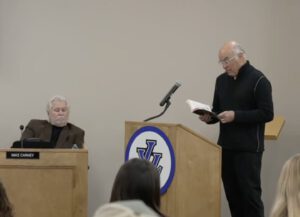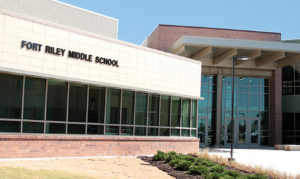‘Diplomas are more like attendance certificates.’ Kansas K-12 academic achievement is plummeting despite higher graduation rates
Despite a significant decrease in attendance, declining test scores and worsening college readiness, Kansas schools are simultaneously experiencing a rise in graduation rates.
How can this…

Despite a significant decrease in attendance, declining test scores and worsening college readiness, Kansas schools are simultaneously experiencing a rise in graduation rates.
How can this be?
“Let’s put it this way, diplomas are more like attendance certificates,” Dave Trabert, CEO of the Kansas Policy Institute (KPI), told The Lion. And at the same time, the Kansas State Board of Education isn’t prioritizing academic achievement, he says.
In 2017, 14% of Kansas students were considered chronically absent, missing at least 10% of instruction time, according to KCUR. During the 2021-22 school year, chronic absenteeism rate jumped to 24.5%.
Research by the Economic Policy Institute confirms the seemingly obvious, that missing school greatly hurts academic performance.
The findings showed students who missed over three days in the month before the National Assessment of Educational Progress (NAEP) scored 0.3 to 0.6 lower in mathematics compared to students who regularly attended class.
Naturally, as Kansas’ attendance rates declined, NAEP and other test scores, such as the ACT, have followed.
Kansas eighth grade NAEP average reading scores fell from 267 in 2017 to 215 last year, according to the latest Nation’s Report Card. Only 60% of students tested at or above “basic” level last year, down from 74% in 2017.
Likewise, the average ACT score in Kansas was 19.9 last year, down from 21.9 in 2012, according to the National Center for Education Statistics.
As a result, only 21% of Kansas ACT test takers last year were considered college ready in English, reading, math and science, down from 32% in 2015.
“The state school board association tried to spin that [32%] to being pretty good,” Trabert said. “They used to say when it was 32% – they said this in the Legislature – only about a third of the jobs in Kansas require a four-year degree, so if we have 32% proficient, we’re doing our jobs.
“They must think parents are stupid. Legislators just aren’t buying it and now we’re down to 21% college ready in four subjects. That’s appalling. We have more kids below grade level in Kansas than are proficient.”
However, despite seeing such significant academic declines, Kansas’ graduation rates are at an all-time high, according to the Kansas Association of School Boards (KASB). The graduation rate increased to 89.1% in 2022, up 8.4 percentage-points since 2010.
It’s why Trabert likens diplomas to “attendance certificates.”
“I know for a fact that at least two school districts, the superintendents haven’t even contested [the accusation] that they’re giving diplomas to kids who can’t read and do math at grade level,” he said.
Despite what many officials and the media have claimed, Trabert asserts the academic decline wasn’t a result of COVID-19 but state-level policies.
“The Department of Education and the State Board of Education are deemphasizing academic preparation, and instead they focus on graduation rate,” he said. “They can control that.
“They focus on social and emotional learning. There are 5 categories of measurement that are used by the Department of Education for accreditation. Not one of them measures whether kids are learning more.”
Trabert also says school districts aren’t spending their allotted money to improve student achievement, as required by law.
“We found this in 2015 and in 2019. The state conducted an audit and concluded that most of the money they examined was not being spent in accordance with the state law,” Trabert told The Lion. “From what we see, the system seems to think it’s okay if kids get an education, but not if it means the system has to change.”
Trabert said the way to force change is to start holding schools accountable.
“There is no accountability in the public schools in Kansas,” he said. “None.”
That’s one reason Trabert and KPI are providing training resources through a new school board resource center.
In fact, KPI will host a training session in Wichita on Nov. 8 called “Improving Student Achievement By Changing Adult Behavior,” designed for school board members. Registration is available online.



